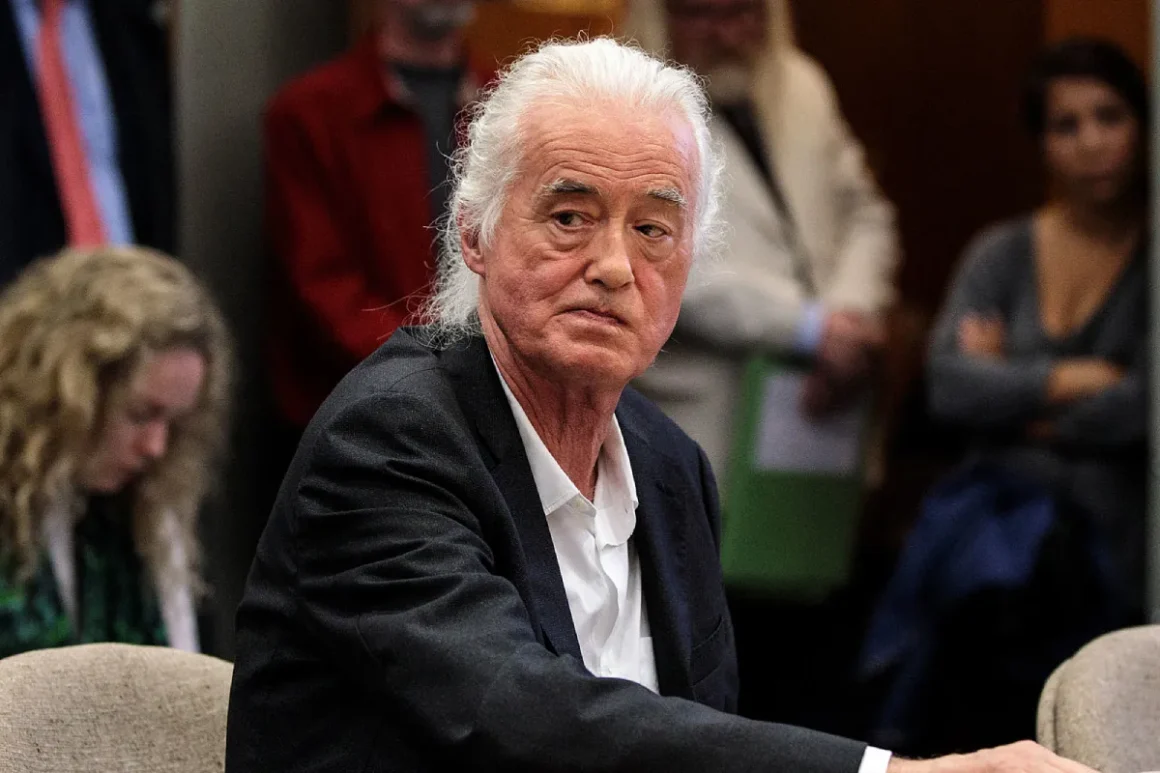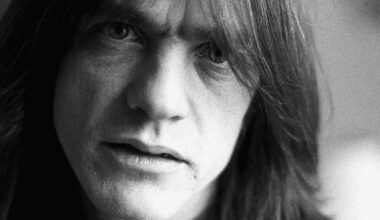It’s no surprise that Jimmy Page has always had impeccable taste in music. Long before he gained legendary status with Led Zeppelin, Page was already a prolific session guitarist, playing with some of the most iconic figures of the 1960s.
When he eventually made a name for himself in Zeppelin, his influences were clear, paying tribute to musical giants like Robert Johnson in “The Lemon Song,” Muddy Waters in “Whole Lotta Love,” and Joni Mitchell in “Going to California.”
Since his rise to fame, Page has consistently been regarded as one of the greatest guitarists of all time. His precision and command of the instrument often overshadow his equally impressive skills as a songwriter.
Like many great musicians, Page finds inspiration in the works of other artists, and for him, one of the most mind-blowing talents is none other than Bob Dylan.
Page’s admiration for Dylan dates back to his early days as a session musician, just as Dylan was transitioning from folk music to electrified rock and roll—a moment that would forever change the course of music.
Dylan’s switch to electric guitar became a pivotal influence, energizing countless future rock bands and songwriters.
Though thousands of musicians view Dylan as the pinnacle of songwriting, Page’s awe of Dylan carries extra weight given his own status as a rock legend.
Remarkably, it was during Dylan’s folk period that Page first encountered his genius.
In a 2019 Instagram post, Page reflected on his first experience seeing Dylan live, back in May 1965 at London’s iconic Royal Albert Hall. “I experienced the genius of Bob at the Albert Hall,” Page wrote.
“He accompanied himself on acoustic guitar and cascaded images and words from such songs as ‘It’s Alright, Ma (I’m Only Bleeding)’ and ‘She Belongs To Me’ to a mesmerized audience. It was life-changing.”
Years later, in 2013, Dylan returned to the Royal Albert Hall for another performance, which Page also attended.
This time, Dylan played a mix of newer material from his Tempest album alongside reimagined versions of earlier classics like “She Belongs to Me” and “Tangled Up in Blue.” Page described the experience as “intoxicating.”
Page wasn’t the only Zeppelin member enthralled by Dylan’s artistry. Robert Plant also expressed his admiration for Dylan’s music and its social impact.
In a 2007 interview with The Guardian, Plant recalled the profound effect Dylan’s music had on him, saying, “Something happened when Dylan arrived.
I had to grapple with what he was talking about. His music referenced great American artists I knew nothing about—Woody Guthrie, Reverend Gary Davis, Dave Van Ronk.
He absorbed the details of America and brought them out without any reservation, igniting a social conscience that is spectacular.”
Plant’s words echoed the seismic cultural shift Dylan’s music brought to Britain. His socially conscious lyrics, paired with a raw authenticity, were a wake-up call for artists across the British Isles.
Dylan’s influence extended far beyond the folk world, inspiring rock musicians like John Lennon to move toward more introspective and confessional songwriting.
For Page and Plant, Dylan’s work wasn’t just about catchy melodies; it was about using music to confront reality.
The change Dylan sparked helped give birth to a new wave of musicians, eager to create something with greater depth, both musically and lyrically.






